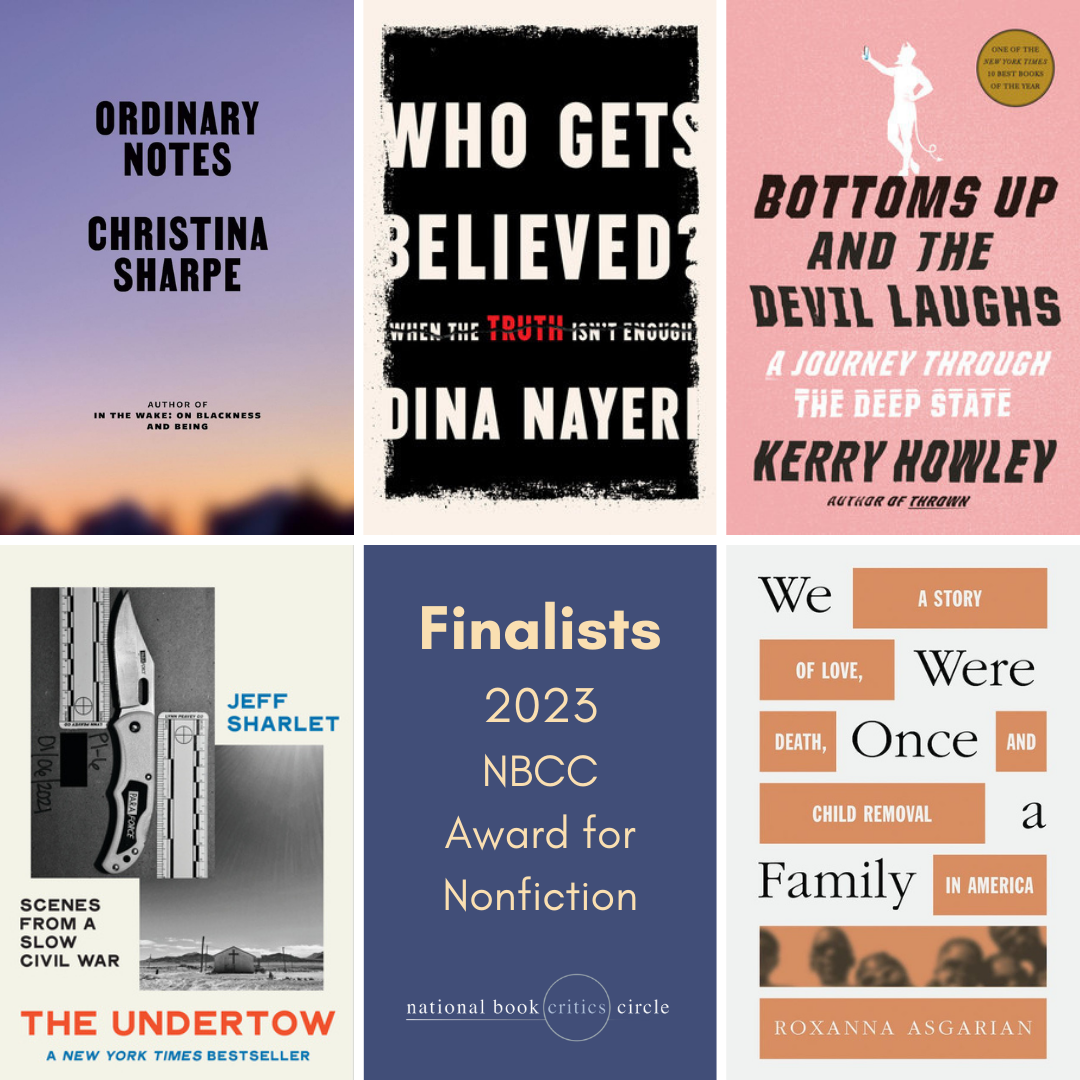Each year, our board members write citations of the finalists for the National Book Critics Circle Awards in a feature we call 30 Books in 30 Days. We’re honored to kick off this year’s edition with brief reflections on the finalists in our nonfiction category.
Roxana Asgarian, We Were Once A Family (Farrar, Straus and Giroux)
Asgarian draws on her background as a Houston court reporter for her astonishing debut. The book is a meticulous, harrowing, and deeply empathetic investigation of the story behind the deaths of a married white Portland, Ore., lesbian couple and their six Black Texas-born adopted children from a cliffside car crash in Mendocino County, Calif., that was ruled a murder-suicide. Asgarian provides a blistering indictment of the Houston family court, child protection agencies, and adoption agencies that wrest children such as the victims away from their birth families, and of the media’s focus, in looking for answers to explain the crime, on the psychology of the adoptive mothers rather than the structural conditions impacting the children’s birth families.
Kerry Howley, Bottoms Up and the Devil Laughs (Knopf)
You might not expect to be moved by a book whose title refers to a conspiracy theory about how Monster Energy Drinks are actually vehicles for Satan. But Bottoms Up and the Devil Laughs is a clear-eyed and nuanced accounting of the ways in which our modern security state reduces human beings into little more than unending terabytes of data. Kerry Howley interprets such data in a way that is distinctly human and deeply generous; she distills small, telling details from a larger story about conspiracy theorists and whistleblowers and everyone in between, while still allowing her narrative to meander and digress in surprising and revelatory ways.
Dina Nayeri, Who Gets Believed? (Catapult Books)
In Who Gets Believed?, Dina Nayeri (The Ungrateful Refugee) collates data from real situations where the stakes of personal credibility are high and their outcomes apparently arbitrary. She connects a refugee whose story is rejected on absurd grounds to her own skepticism, as a Christian child refugee in the United States, of the thrashing antics of the girls around her in church. Nayeri exploits her heterogenous life experience (a management consultancy interlude is among the book’s oblique surprises) to compose a work something like philosophy, one that forces old conceptual questions back into conversation with their crucial roles in daily life.
Jeff Sharlet, The Undertow (W. W. Norton)
In “The Undertow: Scenes From a Slow Civil War,” journalist and author Jeff Sharlet takes readers on a chillingly urgent tour of Donald Trump’s America. Sharlet gives us much more than soundbites as he immerses himself in Trump rallies, a men’s rights conference and a prosperity Gospel megachurch, and as he talks in depth with conspiracy theorists, white nationalists and acolytes of Ashli Babbitt, the woman shot on Jan. 6, 2021, as she tried to break into the U.S. Capitol, “transformed” after her death, Sharlet writes, into “yet another flag, like a new tarot card in the deck of fascism.”
Christina Sharpe, Ordinary Notes (Farrar, Straus and Giroux)
From the glimmering mosaic of Christina Sharpe’s Ordinary Notes emerges a luminous vision of a mind and life, “ordinary” only in the sense that it contains the matter of her daily reckonings, the memories of an extraordinary mother, the “antiblack notes” that have impinged on her and all Americans’ experience of life, and the lovely counter-notes—the lessons, the art, the courageous voicings—that create a new understanding of the world: “All of our renewed power to refuse the concentric senses of the ruinous.”


